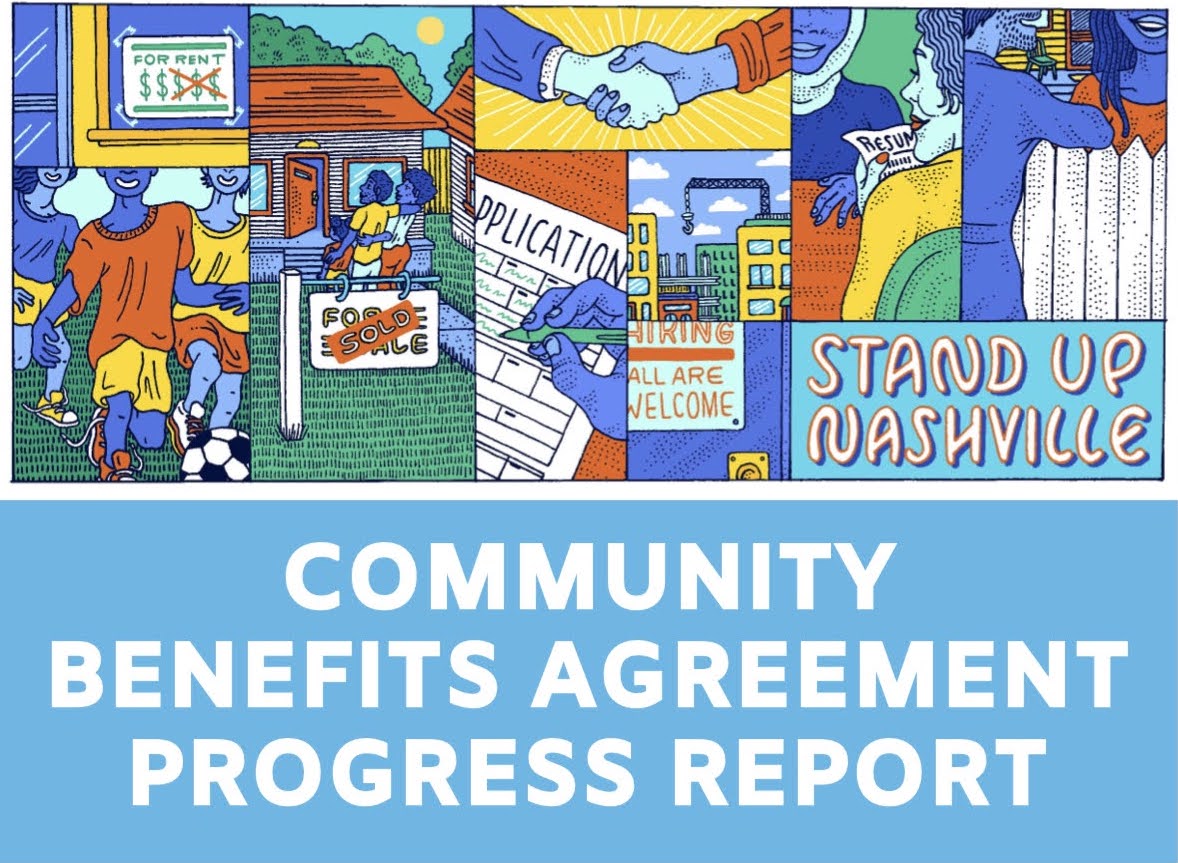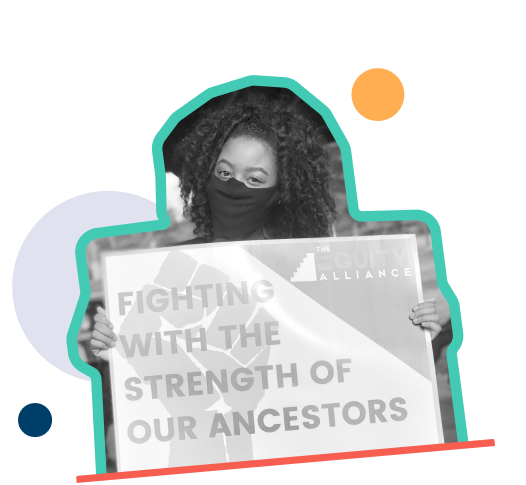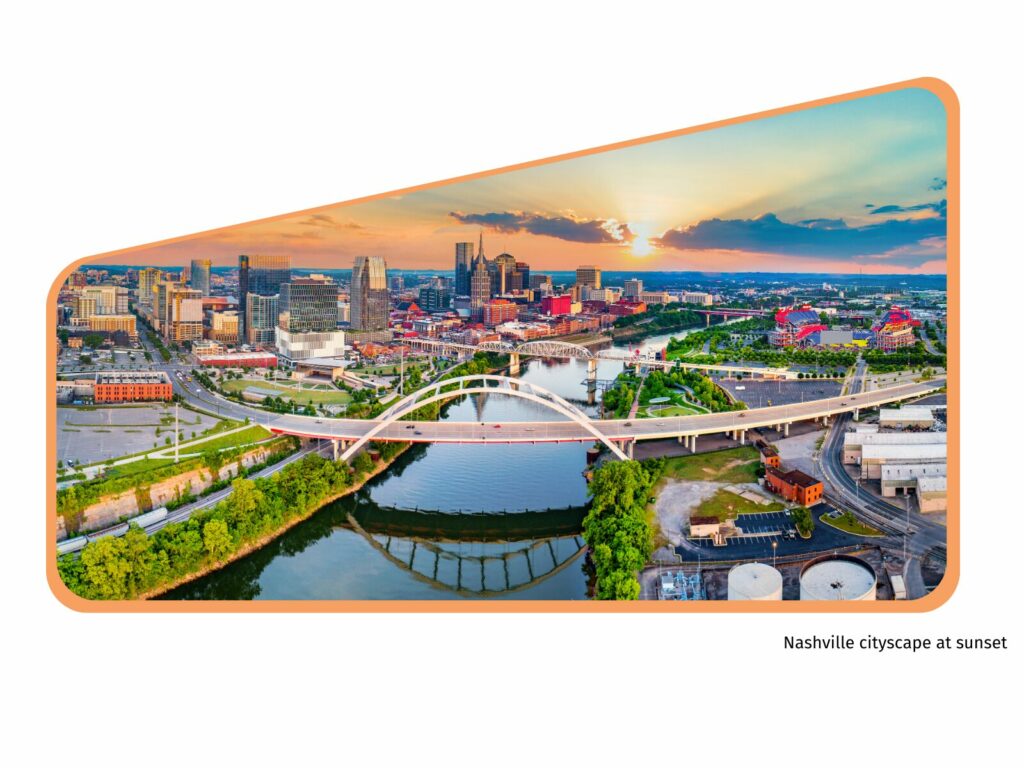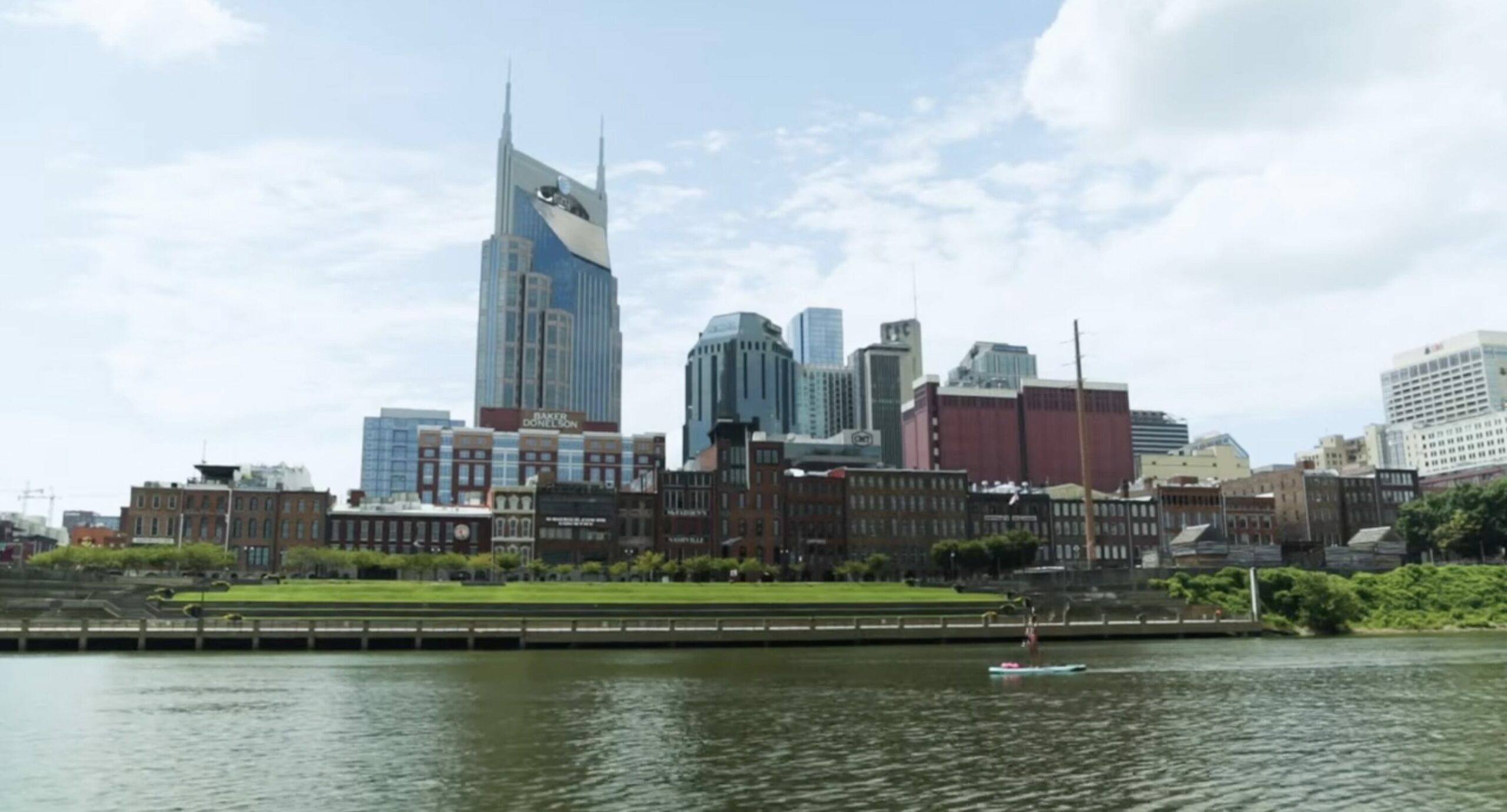After many conversations with local leaders, Nashville emerged as a region of focus due to a lack of philanthropic support at the regional and national levels; the potential for grassroots leaders to influence community power building across the country; and a core belief that the South has always been as much an organizing ground for our freedom dreams, as it is for technologies of violence.
Nashville: An NFG Primer
To understand the current conditions experienced by BIPOC and low-income communities, we must create a shared understanding of the past. Middle Tennessee is unceded Cherokee, Yuchi, Shawnee, Creek, and Chickasaw land that has witnessed colonial and genocidal violence beginning in the 16th century. In late December of 1865, the Ku Klux Klan was formed in Pulaski, TN, a small city, just over an hour from Nashville. And in the late 1960s, white Nashville city planners decidedly built interstate highway I-40 in the middle of North Nashville — uprooting and displacing the thriving Black residents who lived and owned businesses there. Though these few examples cannot encapsulate the entirety of harm experienced by BIPOC and low-income communities, they serve as flashpoints that left indelible marks in Tennessee’s history and created the conditions for recent upsurges in neo-Nazi and white supremacist violence, ranking #1 in the country on a list of highest incarceration rates by zip code, and consistently low voter turnout as a state.
From Euro-American settlers to disaster capitalists, displacement is a story that has defined Middle Tennessee from its fledgling days as a frontier settlement. As the city’s officials make it more affordable for corporations and transplants from higher-cost cities, namely Los Angeles and New York City, to flock to Nashville; the relentless gentrification that results from these development projects continues to push long-time residents out. But efforts to reshape the economy and influence the use of land to the benefit of a small ruling class have not gone uncontested. Community organizations such as Stand Up Nashville (SUN) and The Equity Alliance (TEA) have consistently built campaigns by and for working-class, BIPOC folks to address their immediate needs and ensure Nashville has a sustainable future.
SUN successfully advocated for Tennessee's first community benefits agreement in 2018 after MLS Soccer selected Nashville as its fourth expansion team and $275 million was allocated to build a new stadium.
After months of negotiations, SUN secured commitments to the construction of affordable housing units at the development site, a $15.50 wage floor for stadium workers, an allotment of 8,000 sq ft split evenly for child care services and micro-unit retail spaces for small local businesses, and other workforce development opportunities/protections.

After a tornado in 2020, TEA created the #DontSellOutNorf campaign that attempted to stop rapid gentrification in North Nashville as predatory investors descended on the historically Black neighborhood seeking to profit from the climate disaster. By partnering with disaster experts, attorneys, real estate developers, along with banking and insurance professionals, TEA helped residents make informed decisions about how to resolve their property damage and loss. The group also raised funds to provide direct cash assistance to 125 families to meet their rental assistance needs.
While infrastructure continues to grow by the minute, it cannot be at the expense of BIPOC and low-income communities whose land and labor is already the most extracted from. As demographics shift, immigrants and people of color should feel safe as they move about the city. At a time when our political systems are bending even further toward austerity and authoritarianism, “the people” must not only be enfranchised, but also empowered. The future trajectory of Nashville is being influenced as much by the forces of racial capitalism, as it is the passionate organizing efforts of those who want to save the 'soul' of the city.
Given how wealth accumulation through the (in)direct result of land theft and enslavement in the South built up a “charitable class,” we believe philanthropy should also have a vested interest in repair so that Southern communities can thrive. Yet, as research presented by Grantmaker for Southern Progress and National Committee for Responsive Philanthropy shows: less than 3% of philanthropic dollars goes to the South. Not only does philanthropy have the power to support local groups by investing in their leaders and long-term organizational wellbeing; it also has a responsibility to leverage its resources to disrupt cycles of harm and extraction by prioritizing the structural change needed to actualize racial, gender, economic, disability, and climate justice. As a connector of people, place, and power NFG recognizes its unique role in bringing together community organizers and funders to build power, and we are honored to be back in Nashville to host the 2025 National Convening.
Event Details
When
Jul 15, 2025 - Jul 17, 2025
Where
Nashville, TN
Posted 11/18/2024 in


